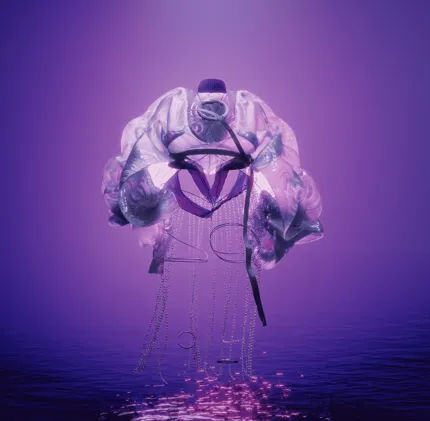Digital fashion house ‘The Fabricant’ is known for creating and selling the first fashion NFT in 2019! Now it is changing its business model again to focus on serving brands. The Fabricant recently revealed this move through a feature in Vogue Business. Let’s take a closer look at how The Fabricant is changing and why.
TL;DR:
- Known for creating and selling the first fashion NFT in 2019, The Fabricant is changing its business model to focus on serving brands rather than just consumer co-creation.
- The shift comes as the value of ETH fell and consumer enthusiasm for NFTs waned. This led the company to recognize that brands need more support in digital fashion.
- The Fabricant wants to offer brands a platform for digital fashion production and distribution.

From Consumer Co-Creation to Brand Support Platform
Previously, the company switched to a consumer co-creation platform for fashion NFTs. However, they found that brands, rather than consumers, needed more support in this area. Now The Fabricant aims to provide brands with a platform to produce and distribute digital fashion extensions, with an emphasis on “premium, culture-defining brands and makers,” with a specific target on Gen Z.
Why did they make this change? Well, The Fabricant’s recent shift comes as the value of ETH fell and customer enthusiasm for NFTs waned. It also recognizes that digital fashion is no longer just associated with the crypto market. Branding strategies have even evolved to focus on long-term partnerships with companies like Epic Games, LVMH, and Yuga Labs.

The future of the Manufacturer
The company’s co-founder and CEO, Kerry Murphy, sees The Fabricant as a decentralized version of LVMH, where it’s just one of the successful brands within the space. To realize this, The Fabricant has received a “mega subsidy” from Epic Games. It also raised $14 million in Series A funding.
Don’t worry – The Fabricant will continue to create its own fashion under its label. Now, however, it also offers brands access to its platform for digital fashion production and distribution. It will also release a new collection called Primal Rave, a combination of traditional Dutch clothing with rave silhouettes. In addition, the company plans to participate in Paris couture week.
So while the company is refocusing on brands, it will still enable limited consumer co-creation through personalization. The Fabricant’s journey highlights the evolving landscape of digital fashion and the need to adapt to market dynamics and brand needs. As the industry continues to grow and gain acceptance, it opens up new opportunities for creativity, innovation and profitability.












